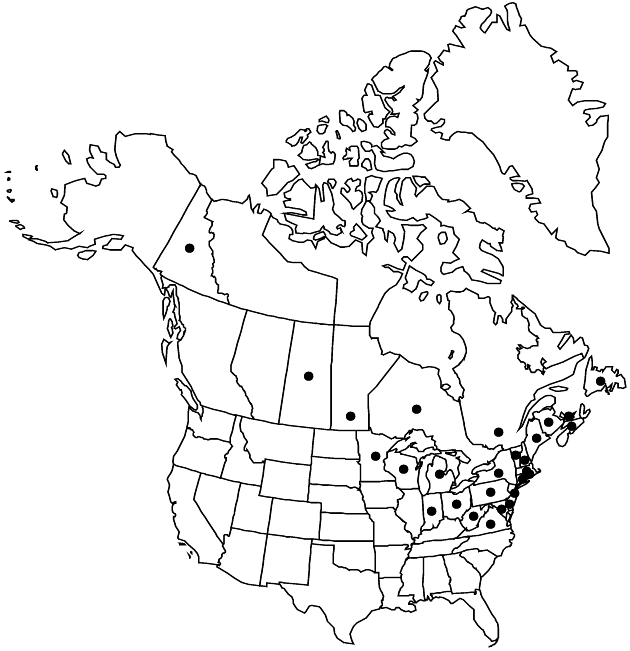Antennaria howellii subsp. canadensis
Brittonia 41: 397. 1989.
Plants 15–35 cm (stems stipitate-glandular). Stolons 3–8 cm. Basal leaves 1-nerved, spatulate to oblanceolate, 20–40 × 6–9 mm, tips mucronate, faces abaxially tomentose, adaxially green-glabrous. Cauline leaves linear, 12–30 mm, distal flagged. Heads 3–7 in corymbiform arrays. Involucres: staminate unknown; pistillate 7–10 mm. Phyllaries (sometimes rose at bases) distally white or cream. Corollas: pistillate 4–6.5 mm. Cypselae 1–1.5 mm, papillate; pappi: pistillate 7–9 mm. 2n = 56, 84 (under A. neodioica).
Phenology: Flowering mid spring–early summer.
Habitat: Pastures, dry fields, openings in woodlands and forests, and rock barrens
Elevation: 0–1500 m
Distribution

Man., N.B., Nfld. and Labr. (Nfld.), N.S., Ont., P.E.I., Que., Sask., Yukon, Conn., Del., Ind., Maine, Md., Mass., Mich., Minn., N.H., N.J., N.Y., Ohio, Pa., R.I., Vt., Va., W.Va., Wis.
Discussion
Subspecies canadensis is almost restricted to the eastern half of North America. It is probably most closely related to Antennaria racemosa of the northern Rockies and A. neglecta of the Great Plains; see R. J. Bayer 1985).
Selected References
None.